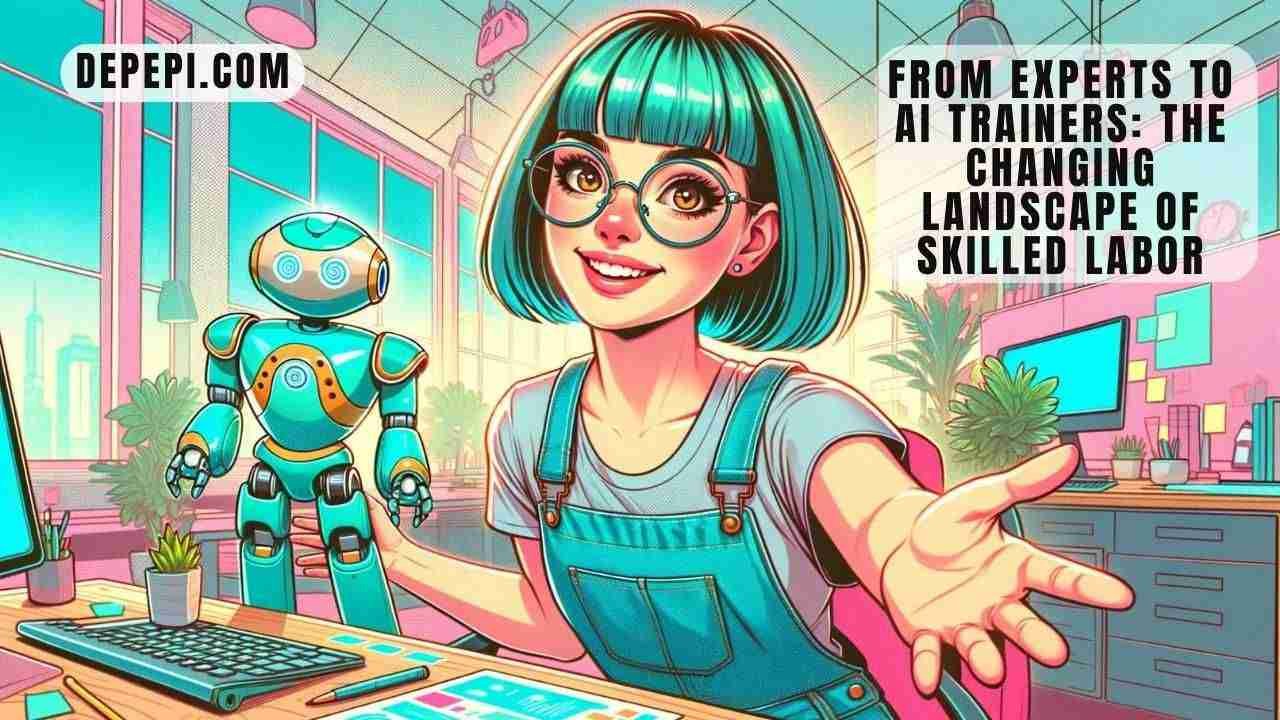The Paradox of Progress: AI Trainers and the Future of Work

AI trainers are emerging as a powerful workforce. Skilled professionals from diverse fields, such as language, creative writing, and even nuclear physics, are venturing into the realm of data labor, essentially training AI systems that could one day render their own expertise redundant. But this is a massive paradox: advancing technology could potentially outpace the very hands that feed it.
AI Trainers: The New Frontier for Skilled Workers
Imagine a scenario where your role is to teach a machine to perform tasks you’re an expert at, only to find out this machine might soon outperform you. This isn’t just a story from a science fiction book; it’s what’s happening to skilled workers today. These individuals have transitioned from being passionate about their field to training AI for companies on the brink of becoming globally recognized.
However, rather than viewing this as a threat, you can see AI as a potential ally in the future, offering a partnership rather than posing as a competitor.
The Shift to Expert Data Labor
The demand for subject matter experts to train AI systems marks a significant shift in the applications of AI, moving towards more sophisticated tasks that require a human touch. This shift has led companies like Remotasks to scout for talents beyond the traditional pools of cheap labor, seeking white-collar skills and language specialists from the United States and Europe. The rationale? To refine AI’s capabilities, making it more reliable, less prone to errors, and capable of generating knowledge and content that reflect human expertise.
The Ethical and Economic Implications
As AI continues to evolve, it raises questions about the ethical and economic implications of training technology that could potentially displace human workers. The allure of high wages for specialist roles—up to $60 per hour in some cases—tempts many to contribute to a future where their roles may be significantly altered or diminished. Yet, this phenomenon also opens up discussions about human adaptability and the continuous cycle of innovation that has characterized progress throughout history.
However, these types of roles are highly unstable. How long will AI need to be trained to learn a certain language?
Looking Ahead: Embracing AI as a Tool for Progress
Despite the uncertainties, there’s an underlying optimism among those participating in this wave of expert data labor. There’s a recognition that technology, while disruptive, is also a tool for easing human labor, opening new avenues for creativity and efficiency.
Worried About Your Future?
Pre-order “You Lost Your Job. Now What? Surviving the AI Shift” and bulletproof your résumé. It offers a comprehensive guide to learning prompting and practical advice on enhancing your CV to secure a competitive edge in the job market.
Can’t wait? Join AI Prompting for Job Hunters & Job Seekers (ChatGPT Prompt Course).






